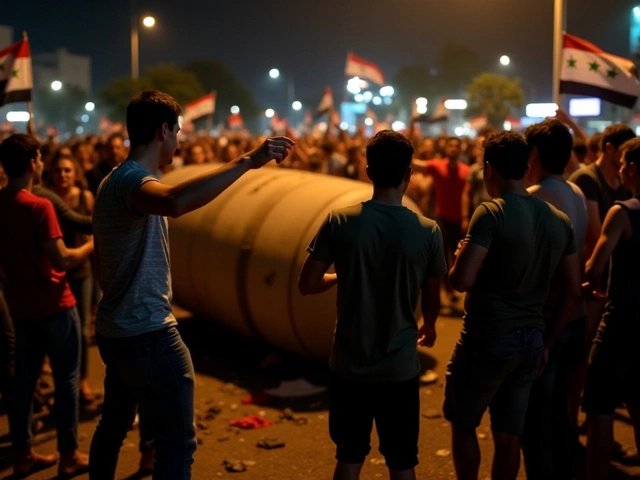- Home
- UK Supreme Court Denies Shamima Begum's Appeal: Citizenship Stripped Permanently Over Security Concerns
UK Supreme Court Denies Shamima Begum's Appeal: Citizenship Stripped Permanently Over Security Concerns

Shamima Begum's Final Appeal Rejected by UK Supreme Court
In a significant ruling, the UK Supreme Court has upheld the decision to strip Shamima Begum of her British citizenship, citing concerns over national security. Begum, who traveled to Syria in 2015 as a 15-year-old to join the Islamic State group, has been at the center of a high-profile legal battle since her discovery in a Syrian refugee camp in 2019.
Begum's case has sparked intense debate over citizenship, national security, and human rights. The Supreme Court's panel of three judges reaffirmed previous rulings by the Special Immigration Appeals Commission and the Court of Appeal, which also denied her appeals. Begum had petitioned to have her citizenship restored, claiming she was a victim of child trafficking and did not fully understand the implications of her actions when she left the UK.
At the heart of Begum's legal argument was the assertion that she should have been allowed to speak with the Home Secretary before her citizenship was revoked. Her legal team contended that due process was ignored, and that the decision to strip her citizenship was driven more by political pressure than by legal principles. They emphasized her age at the time of her departure and argued that she should be treated as a victim of grooming and exploitation.
National Security Concerns
The UK government, however, maintained that restoring Begum's citizenship posed a serious risk to national security. They argued that her involvement with the Islamic State group, regardless of her age and circumstances at the time, made her a potential threat. The Supreme Court's ruling upheld this perspective, stating that national security considerations outweighed other factors. The judgment highlighted that allowing Begum back into the country could undermine important security decisions designed to protect the public.
The case has drawn considerable criticism from human rights organizations and legal advocates. Maya Foa of Reprieve described the ruling as politically motivated, arguing that it fails to address the complex realities of child trafficking and exploitation. Critics contend that Begum should be allowed to face justice in the UK if she has committed any offenses, rather than being left stateless in a foreign refugee camp.
Begum's Life in Limbo
Since losing her British citizenship in 2019, Begum has resided in a refugee camp in Syria. Her living conditions have been harsh, and her situation precarious. Her infant children, born in the camp, have since passed away, adding personal tragedy to her legal struggles. For Begum, the Supreme Court's decision marks the end of her legal recourse within the UK court system, leaving her effectively stateless and stranded in a complex and dangerous environment.
The debate over her case reflects broader concerns about citizenship and national security in an age of global terrorism. Can a country strip someone of their nationality, leaving them stateless, based on their past actions? What legal protections should apply to individuals who claim they were manipulated or coerced into joining terrorist organizations? These questions remain hotly contested, with no easy answers.

Legal and Ethical Implications
The Supreme Court's ruling is a significant legal precedent, reinforcing the government's power to revoke citizenship on security grounds. For critics, it sets a worrying example of how national security concerns can override individual rights and due process. They argue that such decisions should not be made without rigorous scrutiny and should always seek to balance security with human rights.
Supporters of the decision, however, emphasize the necessity of protecting the nation from those who have actively participated in terrorist activities. They point out that Begum's case is complicated by her voluntary association with a group known for extreme violence and radical ideology.
As the debate continues, it is clear that Begum's case will remain a touchstone for discussions about citizenship, security, and human rights. The balance between these competing priorities will likely continue to evolve, influenced by ongoing developments in international law and security policy.

International Perspectives
The international community is also watching the case closely. Other countries have faced similar dilemmas with their citizens who joined terrorist organizations abroad. The decision by the UK Supreme Court may influence how these cases are handled elsewhere, potentially leading to a more unified approach to dealing with foreign fighters and national security threats.
In summary, the UK Supreme Court's decision to deny Shamima Begum's appeal has far-reaching implications. It highlights the tension between national security and individual rights, and raises important questions about how justice and due process should be applied in cases involving terrorism and trafficking. As we continue to grapple with these issues, the outcome of Begum's case will serve as a critical reference point for future legal and policy decisions.


Write a comment